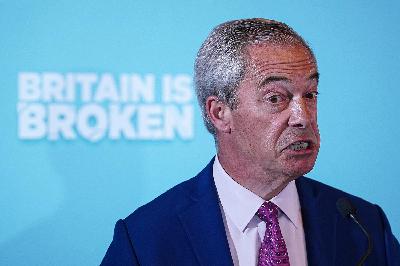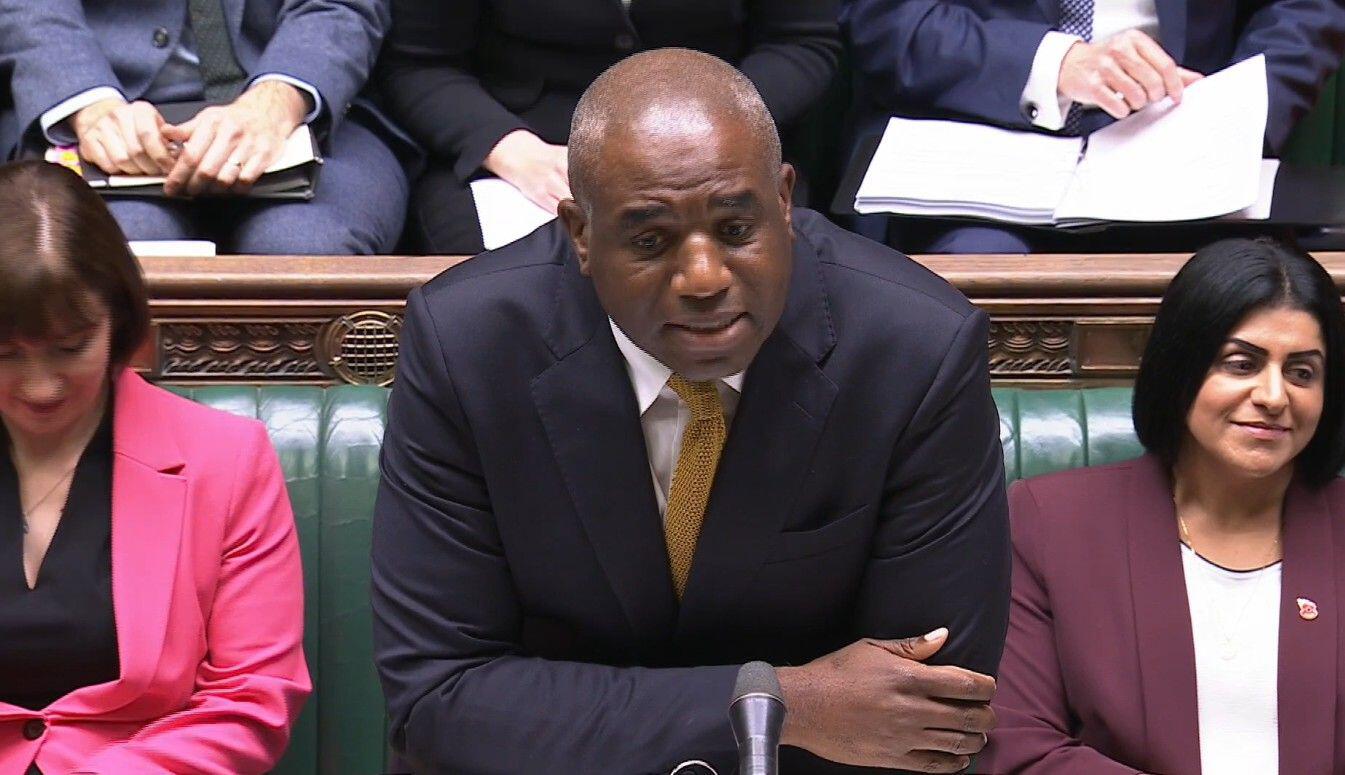Labour's Biggest Problem Is Not a Lack of Leadership but a Lack of Ideas
Update: 2025-11-14
Description
Support our mission to provide fearless stories about and outside the media system
Packed with exclusive investigations, analysis, and features
SUBSCRIBE TODAY
Keir Starmer is not a good Prime Minister. In the year and a half that he has been in Downing Street he has lost the trust of the public and his own party. A poor manager and an even poorer communicator, Starmer has proven to hold few of the political skills required to prosper in 21st century politics.
It is fair to say that many of his problems were not originally of his own making. For all the criticism of Starmer for endlessly blaming his predecessors, he did come into office with the worst inheritance of any Prime Minister in modern times. In every area from public services, to the public finances, it is hard to imagine a tougher set of circumstances for an incoming Government than that experienced by Starmer last year.
However, tough circumstances require tough leadership and so far the Prime Minister has shown himself incapable of delivering it. Indecisive and uncommunicative, Starmer has instead left Downing Street to be largely run by a group of competing aides operating out of their own fiefdoms, with little clear direction from above. The result has been a rapid turnover of senior staff and the sort of infighting that led to the botched briefings against Wes Streeting earlier this week.
Yet for all the talk of a potential challenge against Starmer in the coming months, the fact remains that the biggest problem facing this Labour Government is not just a lack of leadership, but a lack of ideas.
As today's Budget U-turn on income tax today demonstrates, the real problem is not just that the Government is incapable of communicating its ideas from the top, but that it doesn't really know what those ideas should be in the first place.
Is this a Government willing to take unpopular decisions for the greater good, as they claim, or a chaotic administration flittering endlessly from one unpopular alternative policy to the next at the slightest bit of pushback, as recent events suggest?
The fact that even they don't appear to know the answer to this question tells you that the real problem with this Government is not just the lack of an effective communicator in No 10, but a lack of any clear ideas to communicate.
And while much has already been written about potential replacements for Starmer, it's unclear that any of the available candidates have those ideas either.
The BBC's Attempts to Appease the 'Right-Wing Coup' Against It Are Now Seeding Its Own Destruction
By attempting to appease those forces seeking to destroy them, the BBC has helped trigger a crisis that now threatens its very future, argues Adam Bienkov
Adam Bienkov
The Candidates
At the front of the pack to succeed Starmer is the Health Secretary Wes Streeting. Streeting's chances have been boosted recently by a combination of his attempts to tack to the left and the recent bungled attacks on him by Starmer's Downing Street aides. As this week has shown, whatever his flaws, Streeting is a better communicator and a more skillful politician than Starmer.
However, a Streeting leadership still remains a longshot for the obvious reason that his politics remain a long way from the politics of the average Labour member, even allowing for the recent exodus of left-wing members to the Greens. As disliked by many Labour members as he is liked by much of the British press, Streeting would struggle to win any contest to replace Starmer. Faced with a choice between the Health Secretary and a generic soft left rival, most Labour members would likely opt for the latter.
However, even if Streeting could somehow succeed in becoming Labour leader and Prime Minister, it remains unclear whether he has any real sense of what he would do differently to the current incumbent of Downing Street. Like David Cameron, who said he wanted to become Prime Minister "because I think I'd be good at it" Streeting has not shown any ind...
Packed with exclusive investigations, analysis, and features
SUBSCRIBE TODAY
Keir Starmer is not a good Prime Minister. In the year and a half that he has been in Downing Street he has lost the trust of the public and his own party. A poor manager and an even poorer communicator, Starmer has proven to hold few of the political skills required to prosper in 21st century politics.
It is fair to say that many of his problems were not originally of his own making. For all the criticism of Starmer for endlessly blaming his predecessors, he did come into office with the worst inheritance of any Prime Minister in modern times. In every area from public services, to the public finances, it is hard to imagine a tougher set of circumstances for an incoming Government than that experienced by Starmer last year.
However, tough circumstances require tough leadership and so far the Prime Minister has shown himself incapable of delivering it. Indecisive and uncommunicative, Starmer has instead left Downing Street to be largely run by a group of competing aides operating out of their own fiefdoms, with little clear direction from above. The result has been a rapid turnover of senior staff and the sort of infighting that led to the botched briefings against Wes Streeting earlier this week.
Yet for all the talk of a potential challenge against Starmer in the coming months, the fact remains that the biggest problem facing this Labour Government is not just a lack of leadership, but a lack of ideas.
As today's Budget U-turn on income tax today demonstrates, the real problem is not just that the Government is incapable of communicating its ideas from the top, but that it doesn't really know what those ideas should be in the first place.
Is this a Government willing to take unpopular decisions for the greater good, as they claim, or a chaotic administration flittering endlessly from one unpopular alternative policy to the next at the slightest bit of pushback, as recent events suggest?
The fact that even they don't appear to know the answer to this question tells you that the real problem with this Government is not just the lack of an effective communicator in No 10, but a lack of any clear ideas to communicate.
And while much has already been written about potential replacements for Starmer, it's unclear that any of the available candidates have those ideas either.
The BBC's Attempts to Appease the 'Right-Wing Coup' Against It Are Now Seeding Its Own Destruction
By attempting to appease those forces seeking to destroy them, the BBC has helped trigger a crisis that now threatens its very future, argues Adam Bienkov
Adam Bienkov
The Candidates
At the front of the pack to succeed Starmer is the Health Secretary Wes Streeting. Streeting's chances have been boosted recently by a combination of his attempts to tack to the left and the recent bungled attacks on him by Starmer's Downing Street aides. As this week has shown, whatever his flaws, Streeting is a better communicator and a more skillful politician than Starmer.
However, a Streeting leadership still remains a longshot for the obvious reason that his politics remain a long way from the politics of the average Labour member, even allowing for the recent exodus of left-wing members to the Greens. As disliked by many Labour members as he is liked by much of the British press, Streeting would struggle to win any contest to replace Starmer. Faced with a choice between the Health Secretary and a generic soft left rival, most Labour members would likely opt for the latter.
However, even if Streeting could somehow succeed in becoming Labour leader and Prime Minister, it remains unclear whether he has any real sense of what he would do differently to the current incumbent of Downing Street. Like David Cameron, who said he wanted to become Prime Minister "because I think I'd be good at it" Streeting has not shown any ind...
Comments
In Channel
























